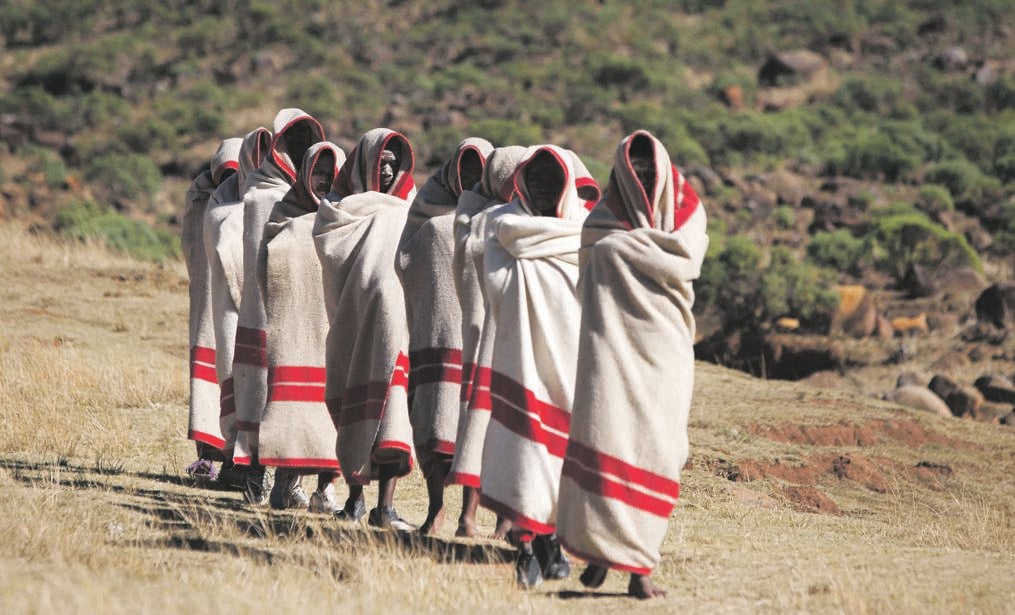
Cross-pollination of African and European cultures has seen the former come out last and its value system, especially towards women, distorted and polluted.
A week ago we concluded June, a month of great significance for amaXhosa. This is the time during which boys are taken into seclusion and initiated into manhood. During which, in the past, boys were taught values such as responsibility, humility and respect for fellow human beings, especially for women – including their mothers and sisters.
In the passage of time this initiation, unfortunately, has been reduced to merely the cutting of the foreskin, a painful experience that has tragically misled many Xhosa men into thinking that they are tough and therefore superior to others who have not undergone that experience.
It is as a result of this false superiority complex that some Xhosa men utter statements and display attitudes reflecting ethnic and sexist chauvinism.
I have often heard of cases where marriage negotiations between baPedi and amaXhosa have failed because Xhosa men have flatly refused to negotiate with baPedi since baPedi delegations include women, with amaXhosa insisting that they do not negotiate magadi/lobola with women.
Such arrogance implies that other ethnic groups must comply with what Xhosa men think is their culture.
Even among amaXhosa, historically, before any decision was made about a daughter being married, the possibility was discussed by parents on both sides – mothers and fathers. It was not the men’s unilateral decision.
This marginalisation of women in the present day’s so-called Xhosa culture is misinformed by the false view that boys’ initiation is exclusively men’s business despite evidence to the contrary.
Urban Xhosa men may not know this since their boys are housed in plastic-made amaphempe (huts) during their initiation, but those from a rural background know that amaphempe were traditionally built by women, and in some areas this continues to be the case.
The centrality of women is significant for at least two reasons. The first is that amaphempe are regarded as the first houses where men are supposed to demonstrate that they can take care of their dwellings, and those buildings are entrusted to women.
The second reason is that the circular structure of amaphempe has a symbolic meaning. The roundness of iphempe resembles the roundness of the womb. By going into amaphempe, boys are symbolically returning to their mothers’ wombs where they are going to be reborn as new men.
It therefore makes sense that when these boys become men, they, as the reborn, smear red ochre representing women’s blood during birth.
On what basis then do Xhosa men say women have nothing to do with boys’ initiation despite such overwhelming evidence?
But the arrogance towards women does not end there.
Xhosa men forbid wives from entering an inkundla (sacred shrine). The first irony is that when women marry into a clan, a goat is slaughtered to welcome the bride into the family. This ritual is called ukutyisa amasi (to feed sour milk) and ukunyathelisa umfazi enkundleni (to make the wife step into the shrine).
The second irony is that while Xhosa men deny women entrance into their families’ shrines, they are allowed to sit in their wives’ family shrines. This anomaly has everything to do with the Africanisation of European culture and Christianity, and the Europeanisation and Christianisation of African culture.
These processes have seen African culture being taken over by Christianity and Christianity being taken over by African culture, and African culture suffering in the process.
A typical example of this is that historically, and even currently in some cases, women have been forbidden by some Christian churches to be priests. Among Africans this has never arisen.
In African traditions women have always and continue to preside over sacred rituals as traditional doctors. Since colonialism, when a woman marries among amaXhosa, the new bride is expected to wear amaJalimani (German dress) in the false claim that this is Xhosa culture, despite this dress code bearing its cultural origins’ name – amaJalimani.
The fact that amaXhosa were among the first to encounter the European invaders, the first to imbibe European education, and the first to embrace European religion has led us to where we are – a distorted culture that has misled us to disrespect women and other men who have not been circumcised by calling them boys as if manhood is limited to the cutting of the foreskin.
IsiXhosa, and all African culture in general, is founded on intlonipho (respect) and ubuntu (humanity), and nothing less than that.
The African philosophy of ubuntu embraces women.
Sesanti is the International Journal of African Renaissance Studies’ editor at Unisa
TALK TO US
How do you feel the rite of passage has changed? Has it become misdirected as boys enter manhood?
SMS us on 35697 using the keyword INITIATION and tell us what you think. Please include your name and province. SMSes cost R1.50. By participating, you agree to receive occasional marketing material




 Publications
Publications
 Partners
Partners








